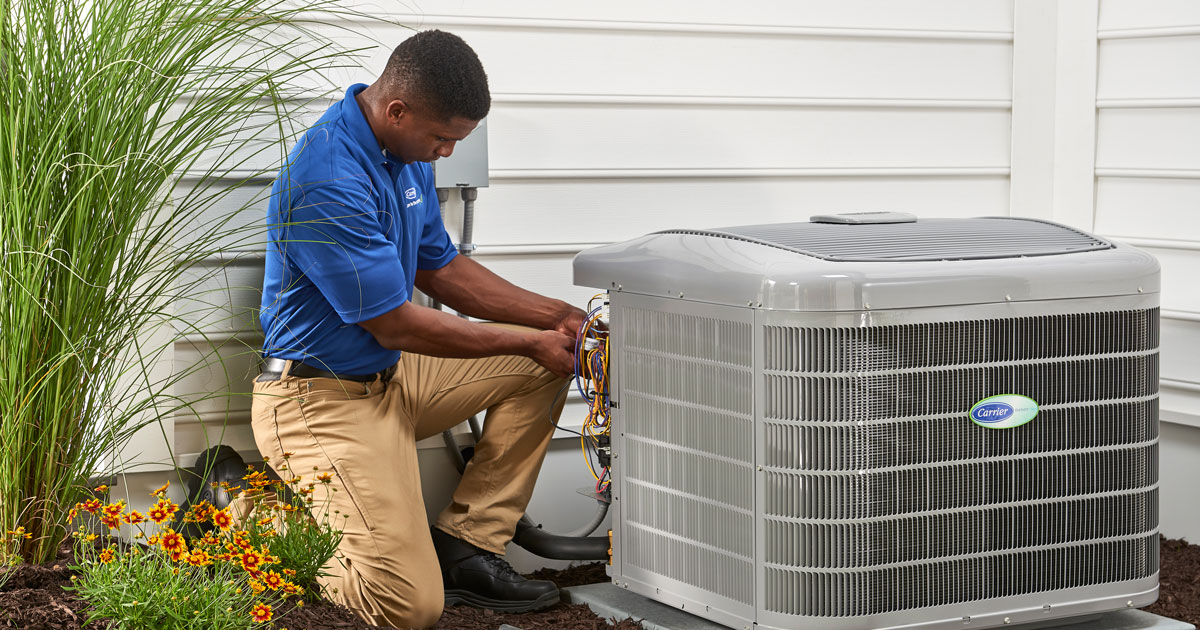Air conditioning, commonly known as HVAC, plays a vital role in maintaining pleasant indoor environments in both domestic and business spaces. As you move through any office, you might not think twice about the systems working silently behind the background to ensure that the air is at a comfortable temperature and quality. However, understanding the principles of physical chemistry that govern these systems can greatly enhance our capability to manage them effectively.
In this guide, we will examine into the mechanics of HVAC, uncovering how these systems function and why they are essential. From introductory concepts for novices to tips on efficient maintenance and energy usage, we will explore various aspects of HVAC systems. Whether you're thinking about an upgrade, looking to boost indoor air quality, or simply wanting to lower your energy bills, this text will provide the fundamental knowledge you need to make smart decisions about your heating and cooling systems.
Understanding HVAC Systems
Heating, Ventilation, and Air Conditioning, Air Conditioning, and HVAC , typically called HVAC, represents an important aspect used for maintaining comfort in indoor environments. At its core, an HVAC configuration operates by controlling the temperature, humidity, and atmospheric conditions of locations in houses and business buildings. It achieves this through a series of integrated components that perform the necessary roles of thermal management, temperature reduction, and breathability. Whether it’s a private environment or a big office facility, understanding how these mechanisms work is crucial for efficient environmental management.
The key elements of an HVAC setup consist of the heating unit, chill source, air exchange system, and the climate control device. Heating can come from different methods, including furnaces, thermal pumps, or heating boilers, which produce warmth during colder months. For temperature control, AC systems or devices like heat pumps are employed to eliminate warm air from indoor atmosphere, ensuring a cool space in the warm months. Air exchange plays a critical part in guaranteeing outdoor air moves through the location, aiding to preserve air quality and remove suspended contaminants.
Additionally, appropriate upkeep is essential to guaranteeing HV AC installation s function efficiently and last longer. Regular inspections can pinpoint frequent concerns such as clogged air filters or freon leaks before they develop into more significant issues. Understanding how these systems work not only assists residential managers and business owners make informed decisions about functioning and upkeep but also empowers them to foster inviting home and professional environments year-round. spintax #### Common HVAC Problems and Solutions
Property owners often face a range of HVAC problems that can disrupt comfort and efficiency. One common issue is inadequate heating or cooling. This can occur due to a defective thermostat, clogged ducts, or low refrigerant levels. To tackle this problem, start by checking the thermostat settings and replacing batteries if needed. Next, inspect and clean air filters and make sure that vents are clear. If problems persist, it may be necessary to call a qualified technician to inspect for refrigerant leaks or system malfunctions.
Another regular concern is unwanted noise coming from the HVAC system. Noises like rattling, creaking, or buzzing can suggest various issues, from wiggly components to failing motors. Residents should initially inspect the outside unit for any debris that might be causing vibrations and make sure all screws and fasteners are tight. If the noise is intense or ongoing, it is recommended to seek professional help to identify and fix the underlying issue, as ignoring it can lead to more serious damage.
Finally, subpar indoor air quality is an aspect that many do not realize as directly related to HVAC systems. Problems such as dust buildup and allergens can stem from dirty air filters or poor ventilation. To improve air quality, regular maintenance is essential, including regular filter changes and duct cleaning. Installing air purifiers and selecting the right filters for your system can significantly enhance indoor air quality and overall comfort in the home.
Energy Efficiency and Innovations in HVAC
The HVAC sector has experienced major progress in energy effectiveness, primarily due to the rising demand for eco-friendly options. Modern units are built to maximize energy use while maintaining comfort in homes and business buildings. dig this as variable speed motors, zoned heating and cooling, and sophisticated heat exchangers permit HVAC units to function more effectively, reducing energy expenditure and reducing electricity expenses.
Intelligent automation implementation is another important advancement driving energy efficiency in HVAC units. Smart thermostats and home management systems provide residents with unparalleled control over their warmth and cooling preferences. These gadgets can learn occupant behaviors, modify settings automatically based on presence, and provide real-time energy usage data, all contributing to a more efficient HVAC functioning. As smart devices continue to evolve, they will play an increasingly critical role in energy management.
Additionally, renewable energy sources, such as solar-powered HVAC units, are changing the field. These units capture solar energy to minimize reliance on traditional power options, offering both ecological benefits and cost savings. Ground-source heating and cooling is another novel solution, utilizing the earth's constant heat to provide sustainable environmental regulation. As these solutions become more available, residents and businesses can make knowledgeable choices that align with their dedication to sustainability and resource conservation.

